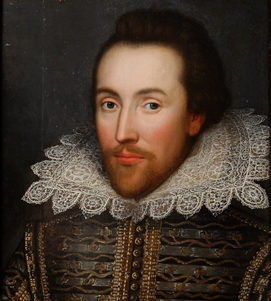Shakespeare and Burns go head to head
Published: 14 January 2016
In the year the world prepares to mark the 400th anniversary of William Shakespeare’s death, and just days before the annual celebrations of Robert Burns’ birth, leading academics will gather at Burns’ birthplace to compare and contrast the two literary greats.
One is an English icon the other very much a Scottish one, and both are revered the world over.
In the year the world prepares to mark the 400th anniversary of William Shakespeare’s death, and just days before the annual celebrations of Robert Burns’ birth, leading academics will gather to compare and contrast the two literary greats.
In what is believed to be a first for an academic conference, Shakespeare and Burns will go head to head in ‘Two Bards: Burns & Shakespeare’.
The event on Saturday (January 16), held at the Robert Burns Birthplace Museum in Alloway, Ayrshire, will bring together leading experts in Burns and Shakespeare to re-examine their life long works and discuss why they have endured and are still relevant today.
 Experts will compare the language and legacies of the two writers, how one influenced the other and why their works have endured the world over, centuries after their deaths.
Experts will compare the language and legacies of the two writers, how one influenced the other and why their works have endured the world over, centuries after their deaths.
Professor Gerard Carruthers, Director of the Centre for Robert Burns Studies, at the University of Glasgow, said: “William Shakespeare was a powerful influence on Robert Burns. Shakespeare was in his DNA. The poet refers in his writing to at least sixteen of Shakespeare’s plays, and in his letters Burns turns to Shakespeare on several dozen occasions.
“They have endured because they both write about the human condition - of love and deceit, their abhorrence of fanaticism, in the case of Burns, hypocritical Calvinists, with Shakespeare, it is unbending Puritans who become a target of satire. They mock vanity and greed and by and large Burns and Shakespeare push people’s buttons in a way that no other British writer does.”
The ‘Two Bards: Burns & Shakespeare’ conference has been jointly organised by the University of Glasgow and the Robert Burns Birthplace Museum (National Trust for Scotland).
The one-day conference at the Robert Burns Birthplace Museum will feature presentations by writers and academics, including Professor Gerard Carruthers, and Professor Michael Dobson, director of the Shakespeare Institute at the University of Birmingham.
Media enquiries: jane.chilton@glasgow.ac.uk / 0141 330 7126
First published: 14 January 2016
<< 2016

